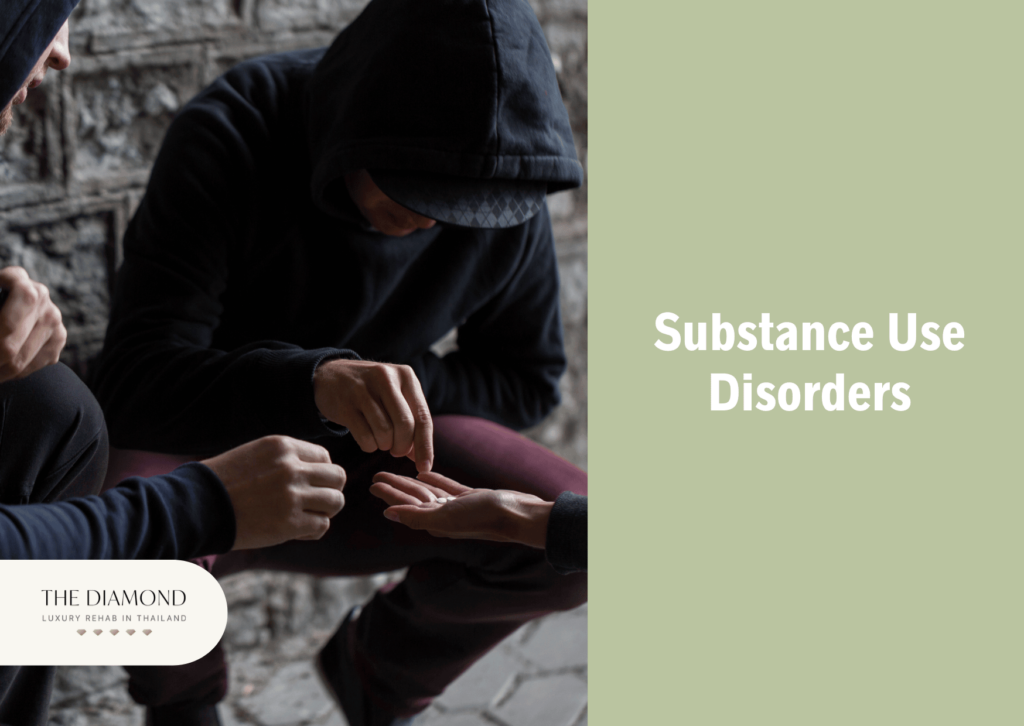Dialectical behavior therapy (DBT): definition, application, and effectivity

Dialectical behavior therapy is a type of talk therapy created specifically for people with intense emotions and suicidal thoughts or tendencies. The therapy was initially developed for the treatment of borderline personality disorder, but today it has various applications.
It is based on two opposite things, acceptance and change. Both these things are crucial for overcoming any mental health condition. DBT is a structured and comprehensive program that consists of several modules.Although there are several uses of DBT, the most common areas include substance use disorders, depression, and eating disorders.
What is Dialectical behavior therapy (DBT)?
Dialectical behavior therapy (DBT) is a type of cognitive-behavioral therapy based on a model which considers dysfunctional behavior either as a result of dysregulated emotions or a maladaptive approach to the regulation of emotions. It is specifically adapted for persons who feel emotions tensely.
What makes dialectical behavior therapy different from cognitive behavioral therapy is that the latter focuses on learning ways to change negative or irrational thoughts and behaviors. On the flip side, DBT prioritizes accepting thoughts as they are and using various techniques to change them. As a type of cognitive behavioral therapy, DBT is more concerned with social and emotional aspects.
Initially, DBT was developed for the treatment of borderline personality disorder (BPD), but today it is used to manage various mental health problems, including suicidal behavior.
The primary objectives of dialectical behavior therapy are to teach persons with certain mental health problems how to live in the moment, develop and adopt healthy coping mechanisms, regulate their emotions, and improve relationships with other people.
Dialectical behavior therapy is mainly suitable for people who experience difficulties with emotion regulation or whose behaviors are self-destructive.
In this context, dialectical refers to the coexistence of opposing elements. This treatment incorporates two seemingly contradictory principles, namely acceptance and change. Acceptance imparts the understanding that individuals’ experiences and acts are legitimate. Simultaneously, change instills in individuals the imperative to proactively navigate their emotions in a constructive fashion, according to an article titled, “Dialectical Behaviour Therapy (DBT)” from the Centre for Addiction and Mental Health from Canada.
Dialectical behavior therapy is a comprehensive program that consists of individual therapy, group skills training, phone coaching, and consultation group for healthcare providers.
Who created Dialectical behavior therapy?
The creator of dialectical behavior therapy is Dr. Marsha Linehan, a psychology researcher at the University of Washington. Dr. Linehan created DBT in the late 1970s. It all started when she attempted to apply standard CBT to the problems of adult women with a history of suicidal tendencies and ideation, self-harm, and self-mutilation.
As a trained behaviorist, Dr. Linehan focused on treating specific behaviors. Together with her colleagues, she concluded the patient had a borderline personality disorder. The main goal of Dr. Linehan’s research was to observe whether patients are able to benefit from CBT. After all, CBT was developed in the 1960s for the treatment of depression and other mental health problems. She wanted to see whether patients with BPD are going to benefit from this therapy as well.
Dr. Linehan realized that relying on CBT for the treatment of patients with borderline personality disorder wasn’t that effective. The standard CBT format wasn’t enough for the treatment of these patients. CBT was found invalidating, and therapists didn’t have much control over the process.
That’s when Dr. Linehan and her team decided to add new strategies such as acceptance and validation. She created a system where patients felt their emotions were validated, but at the same time understood the importance of change for building a life they want to live.
Dialectical behavior therapy has roots in CBT, which was developed in the 1960s. That said, the roots of CBT stem from ancient times and are associated with stoicism. While Dr. Linehan developed guidelines for her research in the 1970s and 1980s, her work was published in the early 1990s.
When did Dialectical behavior therapy become popular?
Dialectical behavior therapy became popular after Dr. Linehan published her work in the early 1990s. In 1993 she released Cognitive-Behavioral Treatment of Borderline Personality Disorder, which was accompanied by a skills manual.
Six years later, in 1999, Dr. Linehan and her team published Dialectical Behavior Therapy for Patients with Borderline Personality Disorder and Drug-Dependence in American Journal on Addiction.As the popularity of CBT kept growing, dialectical behavior therapy became more popular as well. At that point, therapists started realizing that standard CBT doesn’t work for all mental health problems, and a more comprehensive program such as DBT provides more benefits.
Where is Dialectical behavior therapy used?
Dialectical behavior therapy is used for the treatment of mental health disorders that induce intense emotions. The most common mental health disorders where DBT is used are listed below.
- Substance use disorders
- Depression
- Eating disorders
1. Substance use disorders

Substance use disorder (SUD) refers to the intake of illegal substances as well as the misuse of prescription medication. It affects a person’s brain and behavior. The consequences of SUD are numerous, including health problems, financial troubles, and legal issues.
Dialectical behavior therapy is helpful for persons with SUD, even if they have a borderline personality disorder. The therapy reduces substance abuse, and it further proves to be helpful for SUD patients with other mental health problems that don’t respond well to other therapies, according to a 2008 paper by Linda A. Dimeff and Marsha M. Linehan from Addiction Science & Clinical Practice.
When it comes to the treatment of SUD, dialectical behavior therapy works by allowing patients to acknowledge and validate their feelings as well as commit to making a positive change in their lives. Plus, one of the DBT strategies is distress tolerance.
The main goal of distress tolerance is to help a person accept themselves and their current situation. It includes several strategies for handling a crisis. These strategies include distraction, self-soothing, improving the moment, and thinking of the pros and cons of not tolerating distress.
Distress tolerance prepares a person with SUD for intense emotions and empowers them to handle cravings and withdrawal symptoms more effectively.How long it takes to overcome drug addiction or other SUD with dialectical behavior therapy depends on the severity of the addiction. It takes at least 60 to 90 days for most people. Keep in mind that the DBT program lasts longer than that.
2. Depression

Depression is a serious mood disorder indicated by a persistent feeling of sadness, despair, helplessness, and loneliness. Not only is depression serious on its own, but it additionally co-occurs with other mental health problems, including SUD.
A 2013 article written by Josephine A. Beatson and Sathya Rao for The Medical Journal of Australia further confirmed that depression and borderline personality disorder frequently co-occur.
When left untreated, depression leads to severe complications, including suicidal thoughts and tendencies.
A 2020 study by Saito et al., published in the Journal of Child and Adolescent Psychopharmacology showed that dialectical behavior therapy is effective for reducing symptoms of depression.
It works for adults and adolescents alike. In the treatment of depression, DBT works through emotion regulation and mindfulness. During DBT therapy, patients learn and practice mindfulness, which helps them focus on the present and live in the moment.
Mindfulness enables a person to pay attention to their thoughts, impulses, and feelings. It empowers them to use their senses to tune in to what’s happening around them in a nonjudgmental manner. Thanks to mindfulness, a person with depression adopts healthy coping mechanisms and learns to react to negative stimuli in a healthier manner.
Yet another benefit of mindfulness is that it prevents a person from engaging in negative thought patterns that are likely to result in impulsive behaviors.The duration of depression treatment depends on the severity of the condition. It takes two to three weeks to notice initial improvements, but it takes around six months or so for symptoms to improve significantly.
3. Eating disorders

Eating disorders are psychological conditions indicated by unhealthy eating habits such as binge eating, anorexia, or bulimia. The consequences of eating disorders are disastrous and life-threatening.
A 2019 paper by Pisetsky et al., published in The Psychiatric Clinics of North America explored different approaches to the management of eating disorders. Dialectic behavioral therapy was among them. The paper confirmed the effectiveness of DBT and explained it works by eliminating maladaptive behaviors such as binge eating and purging.
Dialectical behavioral therapy for eating disorders works through emotion regulation. This is particularly important for people who use food to cope with emotions. Patients learn to deal with core emotions such as anger, fear, or sadness. By coping with these feelings, they prevent impulsive reactions that lead to unhealthy behaviors.
Eating disorders involve problematic relationships with friends, family, or peers. Dialectical behavior therapy teaches patients to improve interpersonal effectiveness so they become more assertive while keeping a relationship healthy and positive. Through healthier communication with others, DBT prevents the development of an unhealthy relationship with food.
While it takes four to eight weeks to overcome an eating disorder and set foundations for recovery, the DBT program lasts longer and ensures patients practice skills they’ve learned so far.
What is the process of Dialectical behavior therapy?

The process of dialectical behavior therapy is very structured and divided into four modules. The core of DBT is individual therapy. One-on-one sessions last between 40 minutes and an hour. In most cases, it lasts 50 minutes. Patients attend individual therapy sessions once a week.
At the very first individual session, the therapist evaluates a patient, the symptoms they experience, and their severity. This is necessary to determine the number of sessions and the plan for DBT. For individual sessions, patients receive a Diary Card, a form they need to fill out daily about their urges, emotions, behaviors, and skills used.
Diary Card is the road map to the session, which is why at the beginning of each appointment, the therapist reviews the inputs made by the patient. The therapist navigates individual therapy sessions based on information from the Diary Card in the following order: life-threatening behaviors, therapy-interfering behaviors, and quality-of-life interfering behaviors.
Individual sessions put a strong focus on this hierarchy to ensure a patient gets the help and guidance they need. The goal of individual therapy sessions is to decrease behaviors such as interpersonal chaos, labile emotions and moods, impulsiveness, cognitive dysregulation, and confusion about self.
The therapy increases awareness of triggers, behaviors, and thoughts that are changed with certain strategies. At the end of each session, the therapist assigns homework. The main purpose of homework is to reinforce concepts discussed during the session. Besides the Diary Card, a therapist recommends other exercises so the patient is able to practice skills they learned.
When it comes to skills, they involve group meetings. These meetings look more like classes than therapy. A limited number of patients attend these meetings so clinicians who teach these skills have the opportunity to dedicate enough time to everyone. A Diary Card is necessary for group meetings too. The groups focus on skills such as mindfulness. They do not discuss the private life of patients and other specifics (that’s what individual therapy sessions are for).
How many sessions are required for DBT?
The specific number of sessions required for DBT is determined by a therapist. Keep in mind dialectical behavior therapy has four modules, and each module requires the patient to attend sessions. Generally speaking, it takes six months up to a year to complete DBT.
While there are no rules in terms of the number of sessions per module, therapists usually set a rule regarding attendance. For example, missing three consecutive individual therapy sessions, three consecutive DBT skills sessions, or five individual + DBT group therapy sessions altogether results in dismissal from the program.
How is Dialectical behavior therapy done?
Dialectical behavior therapy is done individually, i.e., therapist and patient alone. While it’s possible to attend DBT groups, they’re therapeutic but not therapy per se. However, groups of three to 10 patients are similarly able to help them build or improve their skills.
This kind of therapy works through four modes. These include individual therapy, group skills training, peer consultation team meetings, and intersession contact between a patient and a therapist. The latter includes phone coaching or other forms of contact that the therapist and patient previously agreed upon.
Team meetings are an important aspect of DBT treatment because the therapist needs to work with other healthcare professionals involved to track the patient’s progress or discuss principles to apply.
Who performs Dialectical behavior therapy?

A certified dialectical behavior therapist performs dialectical behavior therapy. That means only a therapist with adequate license and certifications is qualified to provide DBT. In order to get certified, therapists need to meet various requirements such as DBT-related education, clinical experience in DBT, and various documents necessary in practicing the profession.
In addition, it’s necessary to take the written exam, submit videos that demonstrate adherence to DBT, and have at least one formal mindfulness training. DBT therapists hold their certification for two years, after which they need to renew it.
Dialectical behavior therapists need to have various skills and abilities that enable them to help their patients. These include active listening skills, communication skills, critical thinking skills, problem-solving skills, empathy, nonverbal communication skills, and flexibility skills.
Other characteristics and qualities of a DBT therapist include unwavering centeredness, orientation to change, nurturing, and orientation to acceptance.
What does a Dialectical behavior therapist do?
A dialectical behavior therapist helps patients with behavioral issues by guiding them through the course of the therapy. The main goal of a DBT therapist is to motivate patients for change and to support them throughout the process. For that reason, the therapist needs to be well-grounded in the theory and practices of dialectical behavior therapy.
A DBT therapist additionally takes on the role of a collaborator in the process of change. They firmly believe in the client’s autonomy. The therapist aims to establish a healthy relationship with the patient based on trust. Through dialectical behavior therapy, the therapist teaches patients to become their own therapists and use the skills they learn in the real world.
A good DBT therapist is the juggler of all problems their patients bring into sessions. For that reason, they need to be capable of using the target hierarchy and know exactly how to prioritize time during the session. For a DBT therapist, life-threatening behavior is a top priority in the discussion.
Dialectical behavior therapy isn’t just about motivating people to make a change and showing strategies to make it happen. It’s about validating strategies that help patients stay engaged during the session and adhere to the therapy in general as well.
The DBT therapist understands every patient is different and ensures they use the most suitable strategies for the specific needs of each person.
Is Dialectical behavior therapy effective?
Dialectical behavior therapy is effective, and numerous studies confirm its beneficial effects on patients. For instance, a 2014 study by Stiglmayr et al., from the journal Borderline Personality Disorder and Emotion Dysregulation found that borderline personality disorder patients’ self-harming behaviors, frequency of hospital visits, and symptom intensity were markedly decreased following DBT treatment.
To add to that, a review by May et al., published in the March 2016 issue of The Mental Health Clinician confirmed that DBT has demonstrated efficacy in decreasing suicidal thoughts and behaviors, improving treatment compliance, and lowering the rate of hospital admissions among patients with borderline personality disorder.
The same review showed that DBT is effective in the management of depression, binge eating disorder, substance use disorders, and bulimia nervosa. Other conditions for which DBT is an attractive approach include trichotillomania, ADHD, bipolar disorder, and PTSD. Finally, in 2019, the journal Advanced Biomedical Research published a study by Zargar et al., which found that DBT reduced the intensity of mania and depression and improved executive functions in patients with bipolar disorder.

